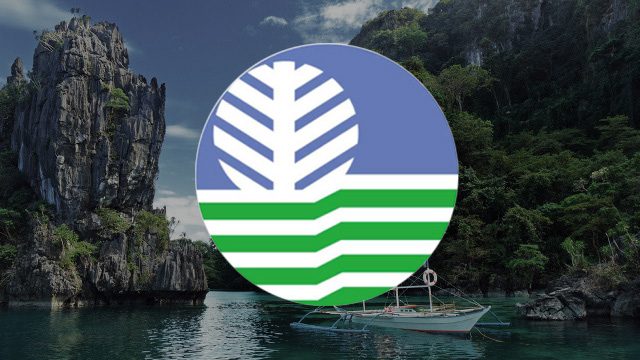SUMMARY
This is AI generated summarization, which may have errors. For context, always refer to the full article.

PUERTO PRINCESA CITY, Philippines – The Department of Environment and Natural Resources (DENR) has put on hold the lifting of the suspension on the issuance of the special use agreement for protected areas (SAPA), following opposition from environmentalists.
DENR Mimaropa Regional Director Natividad Bernardino relayed this to the media when she appeared before the provincial board on Tuesday, May 22.
“Based on his latest instruction, Secretary Roy Cimatu has ordered to put on hold the memorandum he signed concerning the SAPA suspension lifting, until further notice,” she said.
She added, “It’s still not in effect because he wants to study it even more and come up with further guidelines.”
Earlier in May, Cimatu announced that the department already accepts SAPA applications following the lifting of an indefinite suspension on its issuance.
Cimatu also signed DENR Administrative Order 2018-05, which provides for the standard computation of development fees imposed on SAPA recipients. The issuance of SAPAs was indefinitely suspended sometime in 2011 due to the absence of the computation.
SAPA is a tenurial instrument issued to enable the productive use of a protected area – as defined under Republic Act 7586 or the National Integrated Protected Areas System Act of 1992 – while still maintaining its status as a protected area.
Among the objectives of SAPA is the utilization of a protected area’s “ecosystem services” to generate revenues that can be utilized for its improved management and operations, thereby reducing the financial burden of the national government to fund these areas.
SAPA also serves as a regulatory tool for increased resource use beyond carrying capacity and increasing local economic opportunities, such as increased local employment from ecotourism establishments.
In Palawan, SAPA as a tenurial instrument is specifically sought by tourism establishments to operate in a protected area like El Nido, which forms part of the El Nido-Taytay Managed Resource Protected Area.
However, the lifting has gained disapproval from different environmental groups, notably Greenpeace, which claimed that the move will open protected areas to exploitation. (READ: Greenpeace to DENR: Opening protected areas to businesses leads to exploitation)
Greenpeace added that the SAPA issuance is tantamount to selling protected areas out to businesses, and goes against the very essence of RA 7586.
Even Senator Loren Legarda questioned the lifting, and vowed to start probing into this issue. Legarda authored the Expanded National Integrated Protected Areas Systems Act to ban the commercial development and destruction of environmentally sensitive areas.
Prerequisite
Meanwhile, the DENR on April 23 directed regional offices of the Environmental Management Bureau to stop issuing environmental compliance certificates (ECCs) to applicants without tenurial instruments, including the SAPA.
“The memorandum says no ECC shall be granted to any applicant to develop any land of the public domain, unless his tenure application is approved by the secretary or the authorized undersecretary,” DENR-EMB Regional Director Girlie Abu said.
Abu, who also appeared before the provincial board on Tuesday, added that “a mere tax declaration should not be used as a basis for the issuance of the ECC.”
Unlike before when the tenurial instrument had been required as a post-condition to ECC issuances, Abu said it will now be a prerequisite.
“Now if they don’t have a tenurial instrument, we will not issue an ECC,” she added.
Henri Fernandez, president of the Cottages, Resorts, and Restaurants Association of El Nido, said they were dismayed upon learning this news.
“The renewed suspension of the SAPA is a big blow to those proponents who have built and been operating hotels or resorts without a tenurial instrument,” he told Rappler on Wednesday, May 23.
Fernandez suggested that “maintaining a status quo will help protect and conserve the [protected area] from further exploitation and degradation of the environment.” – Rappler.com
Add a comment
How does this make you feel?
There are no comments yet. Add your comment to start the conversation.